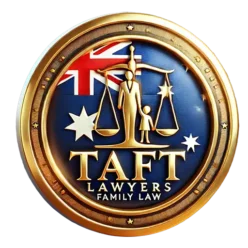
Going through a divorce or navigating separation can be one of the most challenging experiences in life for individuals and families.
I provide comprehensive legal guidance and representation for individuals going through divorce or separation in Australia specifically in Dandenong, Voctoria, ensuring that their rights and interests are protected throughout the process.
I’ll review your case, explain your rights and options, and help you take the first steps toward a brighter future.
My dedicated team and I specialize in divorce law and are committed to providing compassionate, yet effective legal representation to help you navigate this complex process. We are experienced family lawyers based in Dandenong and Melbourne, Victoria.
Divorce and separation law in Dandenong and Melbourne is governed primarily by the Family Law Act 1975.
General information about divorce in Australia
- Family Court in Australia
- Divorce in Australia
- Divorce Laws in Australia
- Process of Divorce in Australia
- What Is Separation in Australia?
- How Long Should one Be Separated before Divorce?
- What Is the Difference between Divorce and Separation?
- How Divorce Settlement in Australia Works
- 70/30 Divorce Settlement in Australia
- Importance of Children in Australia Family Law
- Does Mediation Work in Process of Divorce?
- Divorce in Victoria
- Am I Eligible for Legal Aid?
Family Court in Australia
Family court in Australia plays a critical role in resolving legal disputes related to family matters, primarily focusing on issues such as divorce, child custody, parenting arrangements, and property settlements. The Family Court of Australia operates under federal law, specifically the Family Law Act 1975, which provides a framework for handling family disputes in a way that prioritizes the well-being of children and equitable solutions for parties involved.
Over the years, the court system has evolved to address the complexities of modern family dynamics, ensuring that legal procedures remain fair and efficient.
One of the primary responsibilities of the Family Court is handling disputes involving children, especially where parents cannot agree on custody arrangements. The court makes decisions based on the “best interests of the child” principle, considering factors such as the child’s relationship with both parents, their emotional and physical well-being, and their preferences if they are of an appropriate age and maturity.
Parenting orders may include stipulations on living arrangements, time spent with each parent, and other critical aspects of a child’s upbringing.
In addition to child custody matters, the Family Court also deals with financial disputes following the breakdown of a relationship. This includes the division of assets and liabilities between separating spouses or de facto partners. Property settlements aim to ensure that both parties receive a fair share of the joint assets based on contributions to the relationship, both financial and non-financial.
In more complex cases, the court may involve expert assessments to ensure that financial agreements are just and reasonable for both parties.
Family violence is another significant issue that the Family Court addresses. The court has procedures in place to ensure the safety of parties involved in cases where there is a history of domestic violence. Orders such as protection orders or injunctions can be made to safeguard individuals and children from harm.
The court has also implemented child protection measures, ensuring that allegations of abuse are thoroughly investigated and that protective steps are taken to prevent further risk.
Recent reforms in Australia’s family law system, particularly the merging of the Family Court of Australia with the Federal Circuit Court in 2021, aim to streamline processes and reduce delays. The combined system now operates with a focus on providing timely and cost-effective resolution to family disputes.
These changes reflect a growing awareness of the need for accessible, less adversarial legal processes that prioritize the emotional and financial well-being of families going through challenging transitions.
Divorce in Australia
Divorce in Australia is governed by the Family Law Act 1975, which sets out the legal framework for the dissolution of marriages. Australia operates under a “no-fault” divorce system, meaning that a court does not need to establish wrongdoing by either party to grant a divorce.
Instead, the sole ground for divorce is the “irretrievable breakdown of the marriage,” demonstrated by a separation of at least 12 months. Couples do not need to live in different homes during this time, but they must be able to prove that they were living separate lives, even if they shared the same residence.
To apply for divorce, one or both spouses must be either an Australian citizen, domiciled in Australia, or an ordinary resident who has lived in Australia for at least 12 months before filing. Once the divorce application is lodged, the process typically involves a straightforward court hearing, particularly if both parties agree.
However, if there are disputes—such as over children or property—the divorce process can become more complex, as these issues will need to be addressed separately from the divorce itself.
One of the critical considerations during a divorce involving children is the arrangement for their care and welfare. Australian family law prioritizes the “best interests of the child” when determining parenting arrangements. Couples are encouraged to come to an agreement outside of court, but if this is not possible, the court will issue parenting orders.
These orders will outline custody, visitation schedules, and parental responsibilities, ensuring that the child’s needs are met. The court may also involve expert evaluations if there are concerns about the child’s safety or well-being.
Property division is another important aspect of divorce in Australia. The law does not automatically divide assets equally between spouses; instead, it takes a “just and equitable” approach, considering factors such as the financial and non-financial contributions each party made to the marriage, their future needs (such as earning capacity and responsibilities for children), and the length of the marriage. If couples cannot agree on how to divide their property, the court may intervene and make a binding decision based on these factors.
While the divorce itself can be a relatively straightforward legal procedure, issues relating to children, property, and financial support often require additional legal proceedings. These can either be resolved through mediation, family dispute resolution, or court hearings. It is important to note that applying for divorce does not settle property or parenting issues, so even after the divorce is granted, couples may need to address these matters separately.
The overall goal of Australia’s family law system is to reduce conflict and reach fair, sustainable solutions for all parties involved.
Divorce Laws in Australia
Australia divorce law encompasses a wide range of legal issues, from property division to child custody and support. My firm is well-versed in all aspects of divorce law and will work tirelessly to protect your rights and interests at every step of the way.
Grounds for Divorce
Australia operates a “no-fault” divorce system, meaning the only ground required is that the marriage has broken down irretrievably. This is demonstrated by living separately and apart for at least 12 months. A family lawyer in Dandenong should be well aware of this system.
Application
Either party can apply for divorce. An application can be made jointly or individually.
Jurisdiction
Applications are made to the Federal Circuit and Family Court of Australia.
Children
If there are children under 18, the court must be satisfied that proper arrangements have been made for their care before granting a divorce.
Sometimes Divorce can be straightforward. Other times it can be a complicated process with issues such as:-
- You and your spouse still living together in the same residence
- Having children together
- Not being Australian residents or citizens
- Being Married outside Australia
- Marriage certificate being in another language
- Not having a marriage certificate
- Not knowing where your spouse is
- Living in a different country or state than your spouse
- Your spouse not agreeing to a divorce
When you choose a local family lawyer in Dandenong to handle your divorce case, you can trust that you’ll receive comprehensive legal guidance tailored to your unique situation.
If you have an Iranian background, an Iranian family lawyer can be even a better choice. I’ll take the time to understand your goals and priorities, and develop a personalized strategy designed to achieve the best possible outcome for you and your family.
From filing the initial paperwork to negotiating settlement agreements and representing you in court, our team will handle every aspect of your divorce with skill and professionalism.
I’ll keep you informed and involved throughout the process, ensuring that you always know what to expect and that your voice is heard.
Divorce can be emotionally charged, and it’s essential to have a strong advocate on your side to protect your rights and interests. I am a fierce advocate for my clients, and I’ll fight tirelessly to secure the best possible outcome for you and your family, both inside and outside the courtroom.
Divorce is not just a legal process but also an emotional one. That’s why I’m committed to providing compassionate support to my clients every step of the way. I’ll listen to your concerns, answer your questions, and provide the guidance and reassurance you need to move forward with confidence.
Divorce Process in Australia
The process of divorce in Australia follows a structured legal pathway and begins with the filing of a divorce application. Either spouse, or both jointly, can submit an application to the Federal Circuit and Family Court of Australia (FCFCOA). To be eligible, the parties must meet specific residency or citizenship requirements, such as being an Australian citizen or resident for at least 12 months before applying.
The only legal ground for divorce is the “irretrievable breakdown” of the marriage, which is proven by living separately for at least 12 months. If the couple has attempted reconciliation during this time, the court may still consider the separation valid as long as they were apart for a total of 12 months, with any reconciliations lasting no more than three months.
Once the application is lodged, a court hearing date is scheduled. If there are no children under 18, the divorce process may proceed without the need for either party to attend the hearing.
However, if the couple has children under 18, the court will require that arrangements for their care have been made and are in their best interests. The court typically requires that parents agree on living arrangements, education, and financial support for their children before granting a divorce. If these issues are contested, the court will address them separately through parenting orders and may require mediation or family dispute resolution.
After the hearing, the court will review the application to ensure all legal requirements are met, including verifying that the couple has been separated for the required 12 months and that appropriate arrangements have been made for any children involved.
If the court is satisfied, a divorce order will be granted. The divorce becomes final one month and one day after the court issues the order. At that point, both parties are legally considered divorced and free to remarry if they choose.
It is important to note that while the divorce finalizes the dissolution of the marriage, it does not automatically resolve issues of property division, spousal maintenance, or child custody.
These matters are handled separately, either through mutual agreement, mediation, or court proceedings. Couples have up to 12 months after the divorce is finalized to apply for property settlements or financial orders.
Although the divorce process itself is relatively straightforward in Australia, additional legal procedures may be necessary to address any unresolved financial or parenting matters.
What is Separation in Australia
From negotiating separation agreements to addressing child custody and support arrangements, my experienced team and I will handle every aspect of your separation with skill and professionalism.
As an experienced family lawyer in Dandenong, I’ll ensure that your rights are protected and that your needs are met throughout the process.
Separation can be a complex and emotionally charged process, but you don’t have to face it alone. I will fight tirelessly to secure the best possible outcome for you and your family, both inside and outside the courtroom.
Legal vs. Physical Separation
Legal separation does not require a formal process or court order. Physical separation means living apart, which can sometimes occur even under the same roof with demonstrated separation in daily activities.
Property and Finances
Parties can apply for property and financial orders at any time after separation. The court considers contributions to the marriage and future needs when dividing property.
Spousal Maintenance
One party may be required to support the other if they cannot support themselves adequately.
How Long Do You Need to Be Separated before Divorce in Australia?
In Australia, couples must be separated for at least 12 months before they can apply for a divorce. This 12-month period is used to demonstrate the “irretrievable breakdown” of the marriage, which is the sole ground for divorce under Australian law.
Separation does not necessarily mean living in different homes; couples can be considered separated while living under the same roof, as long as they are living separate lives and can provide evidence to the court that their relationship has ended during that period.
If a couple attempts reconciliation during the separation, they can resume living together for up to three months without restarting the 12-month separation requirement. However, if the couple reconciles for longer than three months, the 12-month separation period will need to begin again if they later decide to proceed with the divorce.
The court will only grant a divorce if it is satisfied that the couple has been separated for a continuous period of at least 12 months.
Difference: Divorce vs. Separation
It’s essential to understand the difference between separation and divorce according to Australia Family Law:
Legal Status
Separation involves living apart while still legally married, whereas divorce legally terminates the marriage.
Financial Implications
While separated, spouses may still be financially connected, such as through shared debts or assets. Divorce typically involves the division of assets and debts and may result in the termination of financial ties.
Custody and Support
Separated couples may need to establish agreements regarding child custody, visitation, and support, similar to divorced couples. However, the legal process for addressing these issues may differ.
Remarriage
Individuals who are separated remain legally married and cannot remarry. Divorce allows individuals to remarry.
Divorce Settlement Australia
Divorce settlement in Australia involves the division of assets, property, and finances following the breakdown of a marriage or de facto relationship. The process is not automatic upon divorce but instead requires either a mutual agreement between the parties or, if necessary, a court determination.
Australian family law follows a “just and equitable” principle, meaning that the division of assets is based on fairness rather than an equal split. If the couple can agree on how to divide their assets, they can formalize the agreement through a Binding Financial Agreement or have it approved by the court to make it legally binding.
If the couple cannot agree, the court steps in to determine the settlement based on several factors. These include the financial and non-financial contributions each party made to the relationship, such as income, property, and homemaking.
The court also considers the future needs of each party, including age, health, earning capacity, and whether either party will have primary care of the children. After evaluating these factors, the court will divide the assets in a way that it considers just and equitable, which may not always result in a 50/50 split.
The couple has 12 months after the divorce is finalized to apply for a property settlement if they cannot reach an agreement. It’s also important to note that property settlements do not only apply to married couples but also to de facto relationships, provided certain criteria are met, such as the relationship lasting at least two years.
70/30 Divorce Settlement in Australia
A “70/30 divorce settlement” in Australia refers to a situation where one party receives 70% of the total assets and the other party receives 30%. This type of settlement can occur when the court determines that a division along these lines is “just and equitable” based on the circumstances of the relationship and the parties involved.
The exact percentage is not predetermined by law but is instead based on a detailed assessment of several factors.
The court considers financial contributions (such as income and property), non-financial contributions (like homemaking and child-rearing), and future needs. For example, a 70/30 split may be awarded if one party has significantly higher future needs, such as being the primary caregiver for children, or if one party has limited earning capacity due to age, health, or other reasons.
Conversely, the party receiving 30% might have higher earning capacity or have contributed less to the family’s finances and assets. Each case is assessed individually, and the court’s aim is to ensure fairness rather than an equal division.
Important Of Children In Divorce from Law POV
Parenting Orders
The court can make orders about where the children live, how much time they spend with each parent, and other aspects of their care, welfare, and development.
Best Interests of the Child
The court’s primary consideration is the best interests of the child, focusing on their safety, welfare, and development.
Does Mediation Work?
Family Dispute Resolution
Before applying to the court for parenting orders, parties must attempt mediation, unless an exemption applies (e.g., cases involving family violence).
Property Settlement
Mediation is also encouraged for property disputes to avoid lengthy and costly court proceedings.
Divorce law encompasses a wide range of legal issues, from property division to child custody and support. My firm is well-versed in all aspects of divorce law and will work tirelessly to protect your rights and interests at every step of the way.
When you choose me to handle your divorce or separation, you can trust that you’ll receive comprehensive legal guidance tailored to your unique situation.
I’ll take the time to understand your goals and priorities, and develop a personalized strategy designed to protect your rights and interests.
Divorce in Victoria
Divorce in Victoria is governed by the Family Law Act 1975, a federal law that applies across Australia. To obtain a divorce, couples must demonstrate that their marriage has irretrievably broken down, evidenced by a separation period of at least 12 months.
Either party can file for divorce in the Federal Circuit and Family Court of Australia, provided they meet residency or citizenship requirements. The court does not consider issues of fault or wrongdoing, as Australia operates under a no-fault divorce system. Importantly, a divorce only legally ends the marriage and does not resolve matters such as property settlement or child custody, which must be addressed separately through legal processes or agreements.
Am I Eligible for Legal Aid and Support Services?
Legal Aid
Available for those who qualify based on income and assets.
Support Services
Various services provide support, including counseling, legal advice, and mediation services.
For specific advice and up-to-date information, it’s advisable to consult a legal professional or a family lawyer in Dandenong or where you live.

Your Family Lawyer in Dandenong

